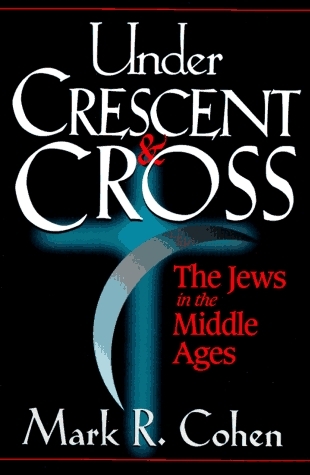It has often been asserted that in medieval times, Jews living in the Muslim lands had it better than their co-religionists in Christendom. Is that assessment accurate? Cohen, professor of Near Eastern Studies at Princeton University, attempts an answer in this first-ever book on the comparative history of Jewish life in the two civilizations.
 Yes, he concludes, Jews were better off in the Muslim world. In part, this was a matter of physical security: "the Jews of Islam, especially during the formative and classical centuries (up to the thirteenth century), experienced much less persecution than did the Jews of Christendom." Living among Sunni Muslims brought other benefits as well, which Cohen meticulously and convincingly documents: in Dar al-Islam, Jews enjoyed a more regular legal status, they participated far more in the mainstream cultural life, and they had more social interaction with the majority community. In all, Jews living among Muslims were less excluded, making them less vulnerable to assault.
Yes, he concludes, Jews were better off in the Muslim world. In part, this was a matter of physical security: "the Jews of Islam, especially during the formative and classical centuries (up to the thirteenth century), experienced much less persecution than did the Jews of Christendom." Living among Sunni Muslims brought other benefits as well, which Cohen meticulously and convincingly documents: in Dar al-Islam, Jews enjoyed a more regular legal status, they participated far more in the mainstream cultural life, and they had more social interaction with the majority community. In all, Jews living among Muslims were less excluded, making them less vulnerable to assault.
Of particular interest, while Christians had a horror of intermarriage, Muslims allowed it on condition that the man was a Muslim. Indeed, Islamic law requires the Muslim husband to permit his Jewish wife to observe her religious rituals, to pray within the family house, to keep the Sabbath, and to maintain the kosher requirements. She might also read her Scriptures, on the important condition that she not do so out loud.
Cohen's study ends with the thirteenth century; we would be much in his debt were he to follow this pathbreaking and excellent study with another on the subsequent deterioration of the Jewish position in the Muslim world.
Aug. 14, 2011 update: The editors write in the introduction to The Convergence of Judaism and Islam: Religious, Scientific, and Cultural Dimensions, ed. by Michael M. Laskier and Yaacov Lev (Gainesville, Flor.: University Press of Florida, 2011), p. 3, broadly agree with Cohen's comparison of the Jewish career under Edom and under Ishmael:
the central thesis permeating our sixteen essays is that Judeo-Muslim ties during the medieval and early modern periods were relatively peaceful at many levels evolving around cultural diversity and intellectual and professional cooperation. This contrasted sharply with the grim realities in premodern Europe under Christendom where policies of institutionalized persecutions and acute socioreligious marginalization [of Jews] prevailed. At the same time, however, we contend that the positive convergence was not consistently idyllic and had been nuanced. While not denying the vitality of Goitein's "symbiosis," we share the term commensality expounded by [Norman] Stillman as being a more suitable expression of coexistence derived from mutually advantageous gains. … Judeo-Muslim relations are measured by the extent of closely knitted ties, mutuality, interpenetration, and occasional tensions and disagreements that arise at different levels.